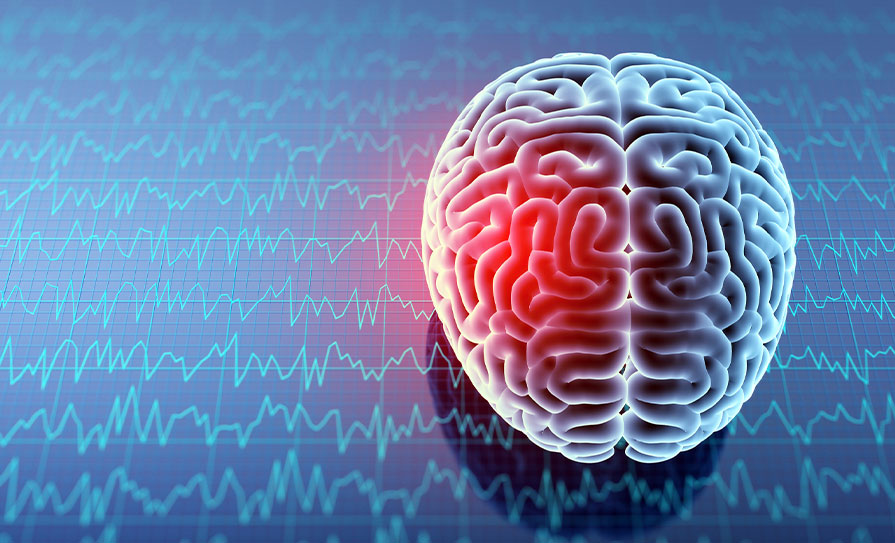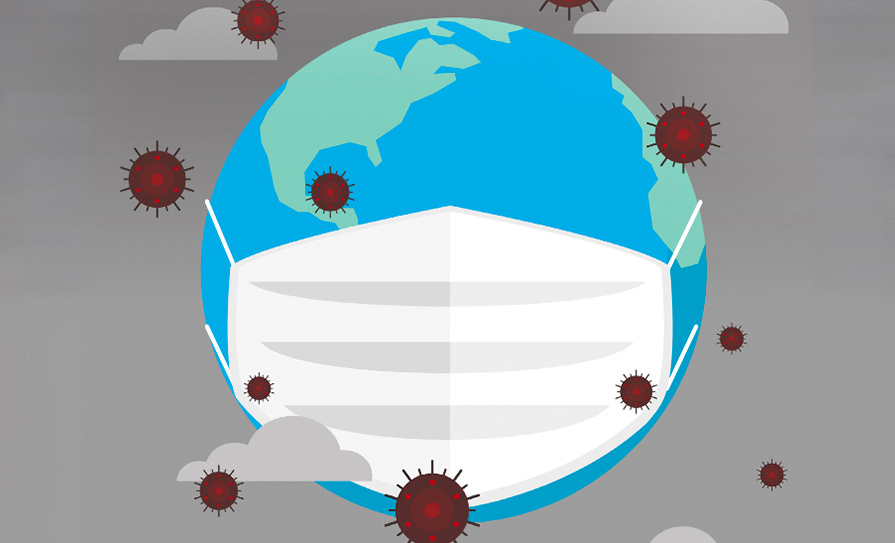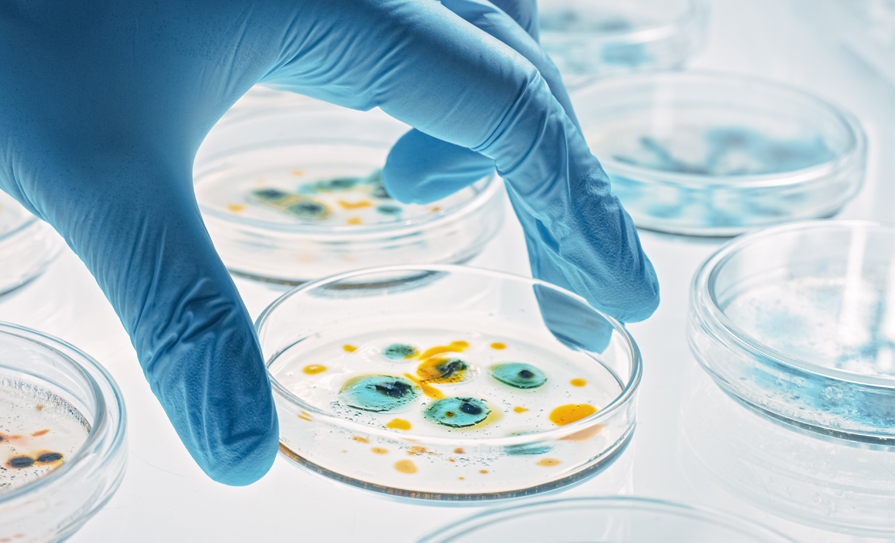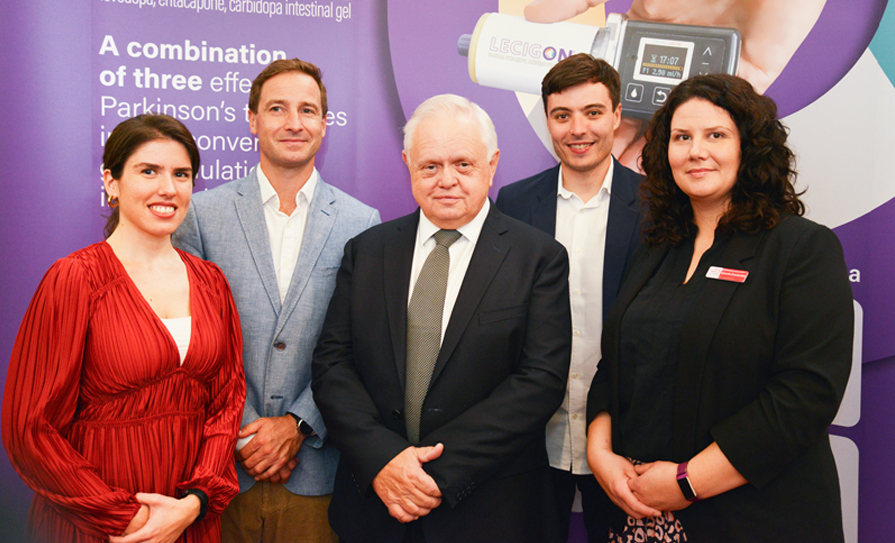Latest findings on importance of early intervention for sports-related concussion in teens and young adult athletes also shared.


Michael ‘Micky’ Collins, PhD, executive and clinical director of UPMC’s Sports Medicine Concussion Programme, and Research Director, Dr Anthony Kontos, will join local experts, coaches, and athletes in a half-day seminar, titled ‘Concussion in sport – A national conversation’, slated for Saturday, September 24 from 9am to 1pm at UCD, Belfield.
It is hosted by UCD School of Medicine in partnership with the University of Pittsburgh Medical Center (UPMC).
Other conference participants include:
- Prof Michael Keane, Dean, School of Medicine, UCD;
- Prof Walter Cullen, Professor of Urban Practise, UCD;
- Dr Rod McLaughlin, Medical Director, IRFU;
- Dr Sean Moffatt, Chairperson, Gaelic Athletic Medical Association;
- Dr Enda Devitt, Connacht Rugby Medical Officer and Lead Doctor, Galway Football;
- Mairead Liston, Medical Manager, High Performance Game, IRFU.
Topics to be covered will include clinical pathways, case reviews, concussion in sports, and an international concussion research update.
UPMC’s Drs Collins and Kontos are global experts in the field of concussion and along with colleagues around the world, recently published the results of a study that focused on the importance of early intervention for sports-related concussions in teens and young adult athletes. Please see the summary below.
Overview and protocol
Sports-related concussion has emerged as a major public health concern that affects millions of adolescent and young adult athletes around the world each year.
Recovery following a concussion, defined as the return to normal, pre-injury state, with no symptoms after physical exertion, can vary since adolescents take a longer time to recover (approximately 30 days) than adults. Other factors that can be associated with recovery, include pre-injury factors, perceptions about recovery, comorbid conditions, and gender. However, one factor that may play a role in recovery, but has received little attention from researchers, is the timeliness of clinical evaluation and care.
The objective of the research was to investigate the association of time of injury with the start of clinical care on recovery time following a concussion.
This retrospective, cross-sectional study was conducted in a sports medicine clinic between August 2016 and March 2018. Eligible participants were aged 12-to-22 years and had a diagnosed, symptomatic concussion; patients were excluded if recovery data was incomplete. Participants were divided into two groups: Those seen within seven days of the injury (early) versus those seen between eight and 20 days of the injury (late). Data was analysed between June 2019 and August 2019.
Research
A total of 416 individuals were eligible and 254 (61.1 per cent) were excluded, leaving 162 (38.9 per cent) in analyses. The early group (98 patients) and late group (64 patients) did not differ in age (mean (SD) age, early, 15.3 (1.6) years; late, 15.4 (1.6) years), number of female patients (early, 51 of 98 (52.0 per cent); late, 40 of 64 (62.5 per cent)), or other demographic, medical history, or injury information. The groups also were similar on symptom severity, cognitive, ocular, and vestibular outcomes at the first clinic visit. Results from a logistical regression supported being in the late group (adjusted odds ratio, 5.8 [95%CI, 1.9-17.6]; P=.001) and visual motion sensitivity symptoms greater than two (adjusted odds ratio, 4.5 [95%CI, 1.1-18.0]; P=.04) as factors significantly associated with recovery time.
Conclusion
Findings of the study suggest that athletes with concussions who presented for clinical care within the first week of injury recovered faster than athletes who did not receive care until two-to-three weeks post-injury. Visual motion sensitivity symptoms over clinical cut off was the only significant clinical outcome with protracted recovery after considering time from injury, suggesting the time to first evaluation may be a factor robustly associated with recovery relative to other injury factors and constitutional risk factors in previously established literature.
This study also demonstrated that once care was established, time to recovery did not differ for athletes evaluated within the first week of injury compared with those evaluated two to three weeks post-injury, indicating the days before initial evaluation were primarily accounting for longer recovery duration rather than time in which patients were under clinical care with a treatment plan. Education on injury and behavioural recommendations to optimise concussion recovery and earlier initiation of active rehabilitation strategies, including exertion and vestibular therapy, are plausible explanations for the association of a shorter recovery time with earlier care.
UPMC Concussion Network in Ireland
The UPMC Concussion Network in Ireland is leading a first-of-its-kind national coalition of healthcare providers to streamline patient diagnosis, treatment, and rehabilitation of concussions, and offers a unique approach to concussion rehabilitation.
The network creates easy access to viable, standardised concussion testing and treatment to keep athletes and patients safe and healthy. Clinicians who are part of the UPMC Concussion Network also gain access to ongoing proprietary training resources curated by UPMC’s concussion experts based in the US.
UPMC Ireland’s services are borne out of UPMC’s world-renowned Sports Medicine Concussion Programme and its experience with ImPACT® (Immediate Post-Concussion Assessment and Cognitive Testing) testing to provide a quantitative approach to concussion care.
Co-developed by concussion experts who lead UPMC’s programme in the US, ImPACT is a state-of-the-art, software-based neurocognitive assessment tool that assesses a patient’s neural process and mental function in detail before a concussion occurs. It also provides doctors with guidance to help diagnose a concussion and decide the best possible treatment plan.
A baseline test to measure an athlete’s brain function in a normal, healthy state prior to injury is highly encouraged. Once a concussion occurs, doctors will use the baseline data as part of the post-injury exam and to help determine the best treatment options. Baseline testing is also used to determine when it is safe for the athlete to return to sports activities.
The UPMC Concussion Networks offers locations and experts throughout Ireland including:
- Northern – Dr Alan Rankin, Clinical Lead, Sports Medicine NI at 40 Montgomery Road, Belfast, Northern Ireland.
- North West – Dr Sean Moffatt, Clinical Lead, Ballina Medical Centre, Ballina, Co Mayo.
- Western – Dr Enda Devitt, Clinical Lead, Whitehall Medical Centre, Abbeygate Street Lower, Galway.
- South West – Dr Niamh Lynch, Clinical Lead, Suite 25, at The Cork Clinic, Western Road, Cork, or Dr Judy Dwyer Clinical Lead, at UCC Student Health, College Road, Cork.
- South East – Dr Dualtach Mac Colgáin, Sports Medicine Physician, at UPMC Sports Medicine Clinic, WIT Arena, Carriganore, Waterford or Dr Tadhg Crowley, Clinical Lead, at Ayrfield Medical Centre, Granges Road, Kilkenny, Co Kilkenny.
- Mid West – Dr Dualtach Mac Colgáin, Sports Medicine Physician, at UPMC Sports Medicine Clinic, TUS Moylish, Limerick.
- Greater Dublin Area – Dr Dualtach Mac Colgáin, Sports Medicine Physician, at UPMC Sports Medicine Outreach Clinic, Vista Primary Care Building, Ballymore Eustace Road, Naas, Co Kildare.
Providing high-quality healthcare in the South East since 2006, UPMC’s operations in Ireland now include UPMC Whitfield Hospital in Waterford, UPMC Kildare Hospital in Clane, and UPMC Aut Even Hospital in Kilkenny.
Outpatient care is available at the UPMC Carlow Outreach Centre, UPMC Hillman Cancer Centre radiotherapy locations in Waterford and Cork, and the UPMC Sports Medicine Clinics in Waterford, Limerick, and Thurles.
UPMC is many things across the globe – a healthcare provider, an insurance provider, a worldwide leader in medical and health sciences research, and an innovative creator of technologies and services to improve healthcare delivery.
It is often referred to as an academic medical centre. This is where education and training, hospitals and doctors, research and innovation all come together through partnership and we are particularly proud to partner with our colleagues in the UCD School of Medicine, Dublin, to deliver this important seminar to the medical community in Ireland.
To register for ‘Concussion in sport – A national conversation’ hosted by Off the Ball’s Ger Gilroy, click this link. CPD points will be awarded for those who attend.










Leave a Reply
You must be logged in to post a comment.